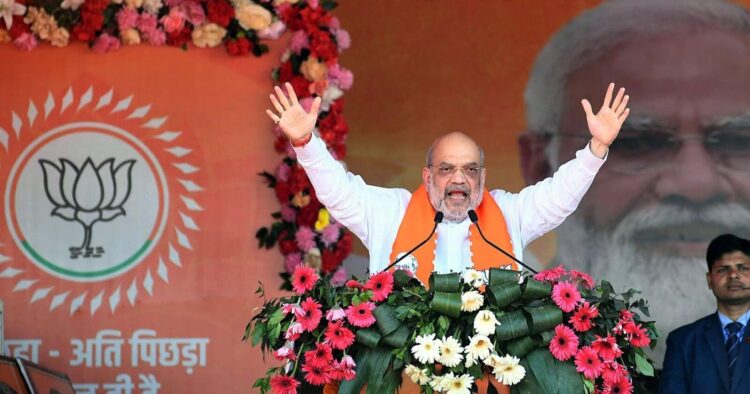The Bharatiya government has introduced new rules, called the Citizenship (Amendment) Rules, 2024, which enable eligible individuals under the Citizenship Amendment Act of 2019 (CAA-2019) to apply for Indian citizenship. These rules specifically aim to assist minorities who have faced religious persecution in Pakistan, Bangladesh, and Afghanistan. The applications for citizenship are to be submitted entirely online through a designated web portal provided by the government.
The implementation of these rules comes just before the Model Code of Conduct is enforced, anticipating the upcoming Lok Sabha elections scheduled for April-May. The Citizenship Amendment Act, which was passed by Parliament in December 2019, seeks to provide Indian citizenship to refugees who arrived in India before December 31, 2014, due to religious persecution in the aforementioned neighboring countries.
Union Home Minister Amit Shah emphasized that the notification of these rules fulfills another commitment made by Prime Minister Narendra Modi’s government. He highlighted that this move realizes the promise of the Constitution makers to protect Hindus, Sikhs, Buddhists, Jains, Parsis, and Christians facing persecution in the mentioned countries.
The process outlined in the notification requires applicants to renounce their citizenship of their origin country irrevocably if their application for Indian citizenship is approved. Additionally, applicants are prohibited from making any future claims on their former citizenship. The notification also provides detailed steps and procedures for eligible individuals to apply for Indian citizenship under the new rules.
Under the newly inserted Rule 10A of the Citizenship Rules, 2009, eligible individuals can apply for citizenship by registration or naturalization through Form VIIIA. This application should be accompanied by an affidavit verifying the accuracy of the information provided, along with an affidavit from an Bharatiya citizen endorsing the applicant’s character. Furthermore, applicants must declare their adequate knowledge of one of the languages specified in the Eighth Schedule to the Constitution.
Applicants are considered to possess adequate language proficiency if they can speak, read, or write the specified language. The application process, as stipulated by the rules, involves electronic submission to the Empowered Committee through the designated District Level Committee, as notified by the Central Government. Upon submission, applicants receive an electronic acknowledgment in Form IX.
The District Level Committee, headed by the Designated Officer, verifies the documents submitted by the applicant along with the application. Subsequently, the Designated Officer administers the oath of allegiance specified in the Citizenship Act, 1955, to the applicant. The oath and confirmation regarding document verification are then forwarded electronically to the Empowered Committee for further processing.
If an applicant fails to appear in person despite reasonable opportunities, the District Level Committee forwards the application to the Empowered Committee for consideration of refusal. The Empowered Committee scrutinizes the application to ensure completeness and compliance with all conditions. After conducting necessary inquiries to assess the applicant’s suitability, the Empowered Committee may grant Indian citizenship to eligible individuals.

















Comments